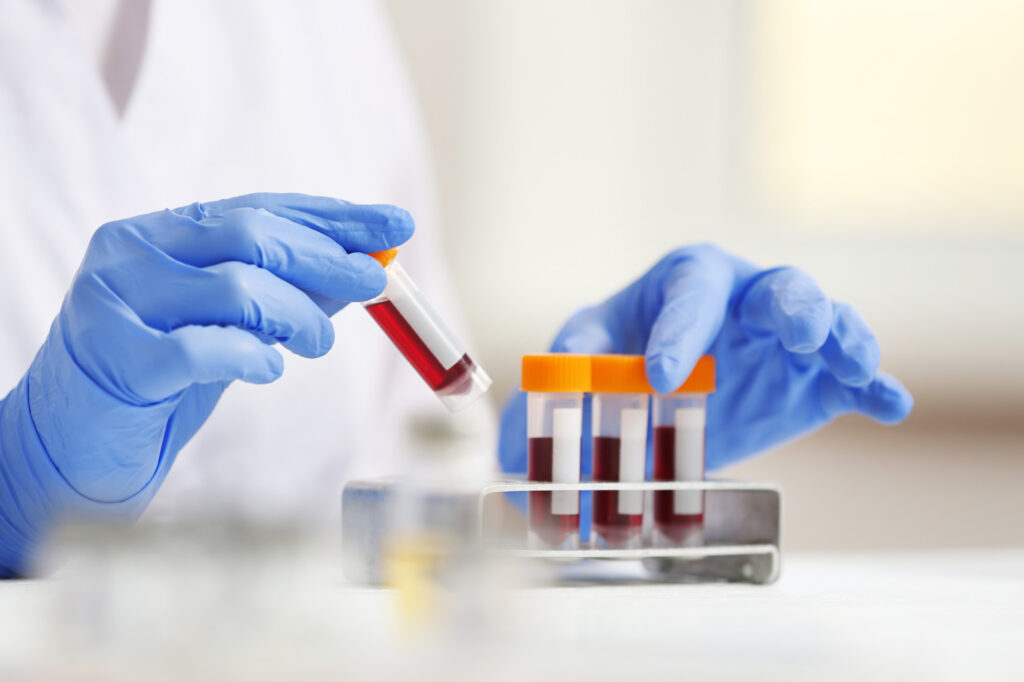Blood Tests for Cancer Diagnosis
Deciphering Blood: The Function of Tumour Markers and Blood Tests in the Diagnosis of Cancer
A multifaceted approach is used in the diagnosis of cancer. Blood tests are an important part of the process even though they are not a perfect means of diagnosing cancer on their own. This blog examines the use of tumour markers and blood tests in the detection and treatment of cancer.
Table of Contents

Testing Blood: Not Just Counting Cells
Blood Tests for Cancer Diagnosis
Comprehensive blood test panels can detect possible problems and offer important information about your general health. Blood testing help diagnose cancer in the following ways:
- Complete Blood Count (CBC): This routine test assesses platelets, white blood cells, and red blood cells. Anomalies in these counts may point to the existence of underlying diseases, such as cancer.
- Tests for Liver and Kidney Function: These examinations evaluate the liver and kidneys, which may be impacted by certain types of cancer.
- Blood Chemistry and Electrolytes: Assessing the amounts of these two elements can assist in locating any possible abnormalities that may be connected to specific types of cancer.
It is imperative to bear in mind:
Blood Tests for Cancer Diagnosis
Cancer cannot be diagnosed by blood test results alone. They can show irregularities that need more research.
When combined with other diagnostic techniques, blood tests are very important.
Cancer Activity: An Overview of Tumour Markers
Blood Tests for Cancer Diagnosis
Tumour markers are chemicals that the body or cancer cells create when they become malignant. They are not cancer-specific, and they are not always raised in every case of cancer, but they can be an important aid in:
- First screening: While some tumour markers can be used to identify high-risk patients, further testing is usually necessary to validate the results. (Prostate cancer PSA, for example)
- Carcinoembryonic Antigen (CEA): tracking the course of treatment Levels of tumour markers can be monitored both during and after therapy to evaluate the tumor’s response and perhaps identify recurrence.
- directing choices about treatment: Options for treatment may change if particular tumour markers indicate a particular form of cancer.
Here are some illustrations of typical tumour markers in use:
Blood Tests for Cancer Diagnosis
- Prostate-Specific Antigen (PSA): Increased PSA levels need to be further evaluated, because they may indicate prostate cancer.
- CA-125: This marker can be high in different disorders as well as ovarian cancer.
- Elevated carcinoembryonic antigen (CEA): is not specific to any one form of cancer; it has been linked to a number of cancers, including colorectal cancer.
- Alpha-Fetoprotein (AFP): Liver cancer and some germ cell tumours can cause an increase in AFP.
Vital Points to Remember:
Blood Tests for Cancer Diagnosis
Even when cancer is present, tumour markers may still be normal.
Non-cancerous diseases might give rise to elevated tumour markers.
A physician should evaluate the results of tumour markers while taking the whole clinical picture into account.
Putting the Pieces Together: Blood Testing and a Wholesome Approach
Blood Tests for Cancer Diagnosis
Although they are important instruments in the battle against cancer, blood tests and tumour markers are only one aspect of the picture. They offer a complete picture to help with diagnosis, treatment planning, and monitoring when combined with imaging tests, biopsies, and other diagnostic procedures.
The main conclusions are summarised as follows:
Blood Tests for Cancer Diagnosis
Blood testing can identify anomalies that need more research and provide a broad picture of your health.
Screening, treatment monitoring, and possibly even treatment decision-making can be aided by tumour markers.
When used in conjunction with other diagnostic methods, blood tests and tumour markers have the greatest potential for benefit.
Blood Tests for Cancer Diagnosis
You may take an informed role in your healthcare journey by being aware of the significance of tumour indicators and blood tests. With your doctor, go over any worries you may have regarding blood tests or tumour markers.


